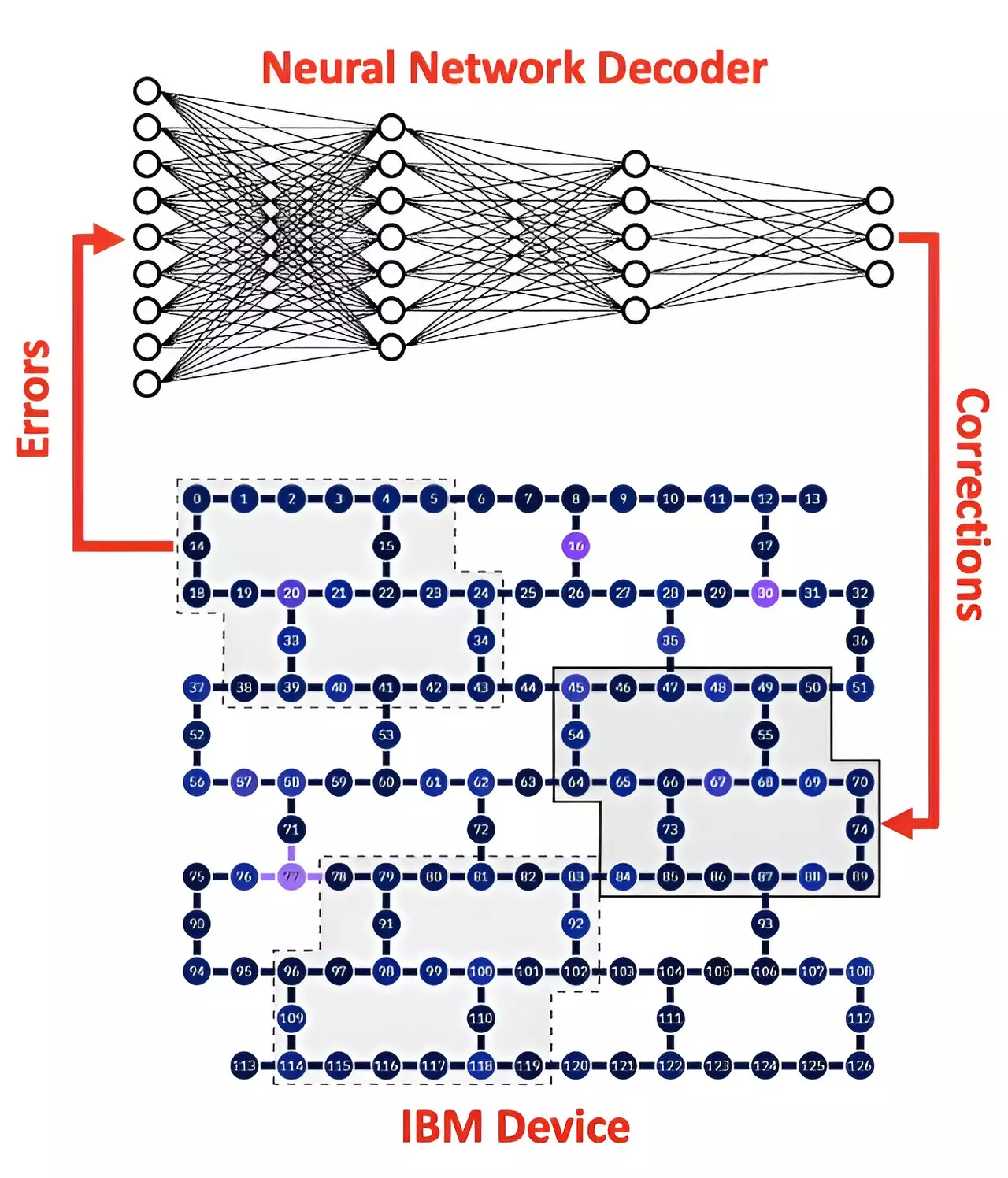As we stand on the cusp of a technological revolution, quantum computing promises to reshape the landscape of computational capabilities. Yet, despite its immense potential, a significant hurdle persists: the issue of quantum errors, attributed to the inherent instability of qubits. Traditional computers, operating on binary bits, are relatively straightforward in their processing. However, qubits, the building blocks of quantum computers, introduce a layer of complexity due to their ability to exist in multiple states simultaneously. This unique property, while theoretically powerful, gives rise to ‘noise’—a form of error that jeopardizes computations and has long been regarded as the primary impediment to practical quantum computing applications.
A Breakthrough Solution: AI-Driven Error Correction
Recent research spearheaded by Australia’s national science agency, CSIRO, heralds an innovative approach to mitigating these quantum errors through artificial intelligence (AI). The findings, published in the esteemed journal *Physical Review Research*, mark a significant milestone in the convergence of AI and quantum technology. By employing an AI neural network designed to function as a syndrome decoder, researchers demonstrated that it is indeed possible to identify and rectify errors generated by qubit noise. This synergy between AI and quantum computing does not merely propose a stopgap solution; it lays the groundwork for a new frontier wherein quantum systems can move from experimental gadgets to reliable computational tools.
Dr. Muhammad Usman of CSIRO’s Data61 Quantum Systems Team detailed how the research adeptly harnesses machine learning to navigate the labyrinth of quantum error correction. The team’s work showcased that this advanced decoder could efficiently analyze error data gleaned from practical measurements taken on IBM’s quantum devices, suggesting corrections even amidst the chaotic environment of qubit noise. This realization could prove transformative, indicating that AI can elevate quantum error correction from theoretical possibilities to practical applications.
The Mechanisms of Quantum Error Correction
To truly appreciate the significance of this research, it’s essential to understand the mechanics of quantum error correction codes. These codes are meticulously designed to spread logical information across multiple physical qubits, thereby combating the noise that jeopardizes reliable computing. The process involves complex syndrome measurements—assessments that yield information about the nature of the errors involved. Swift and accurate management of these measurements is crucial for the efficient operation of correction codes; this is where AI comes into play.
By training the neural network decoder, CSIRO’s team enabled it to effectively interpret and respond to error signals, thereby enhancing the decoder’s operational efficiency. While traditional quantum error correction faces challenges, particularly when errors exceed theoretical thresholds, this innovative methodology leverages the adaptive capabilities of AI to propose viable corrections. The interplay between AI’s learning algorithms and quantum mechanics could signify a paradigm shift in how we approach error management in quantum systems.
The Road Ahead: Future Implications and Optimism
As quantum technologies advance, researchers anticipate that error rates will decrease. This evolution holds promise for the performance of AI-augmented quantum error correction systems. Dr. Usman’s optimism reflects the broader sentiment in the quantum research community: as we enhance the scalability of error correction codes and reduce physical error rates, AI could pave the way for significant improvements. Ultimately, the combination of AI and quantum computing may lead us toward achieving full fault tolerance—a state in which the systems can autonomously rectify errors without jeopardizing their outputs.
While challenges remain—particularly concerning the noise levels in current quantum processors—this groundbreaking research fortifies the notion that AI could serve as an essential collaborator in overcoming barriers that have long hindered the realization of effective quantum computing. By addressing the fundamental issues inherent in qubit operations through innovative AI solutions, we inch closer to unleashing the transformative power of quantum technology for solving complex real-world problems.
In a world increasingly reliant on technological advancements, the alliance between AI and quantum computing not only signifies a scientific breakthrough but also raises profound questions about the future of computation itself.

